GRE Words in Context: List 1
Takes five hundred (500) GRE-levelvocabulary words through their paces, including Parts of speech,Synonyms, Dictionary definitions, and, MOST IMPORTANTLY, three (3)to five (5) example sentences FOR EACH WORD INCLUDES Valuable Tips and Strategies for Maximizingyour use of the Word List Test Prep Series www.vibrantpublishers.com *****
GRE Words in Context: List 1
Published by Vibrant Publishers at Smashwords Copyright 2015 Vibrant Publishers,USA. Smashwords Edition, License Notes This ebook is licensed for your personal use only.This ebook may not be re-sold or given away to other people. If youwould like to share this book with another person, please purchasean additional copy for each recipient. If youre reading this bookand did not purchase it, or it was not purchased for your use only,then please return to Smashwords.com and purchase your own copy.Thank you for respecting the hard work of this author. This publication is designed to provide accurate andauthoritative information in regard to the subject matter covered.The author has made every effort in the preparation of this book toensure the accuracy of the information. However, information inthis book is sold without warranty either expressed or implied.
TheAuthor or the Publisher will not be liable for any damages causedor alleged to be caused either directly or indirectly by thisbook. Vibrant Publishers books areavailable at special quantity discount for sales promotions, or foruse in corporate training programs. For more information pleasewrite to Please email feedback / corrections(technical, grammatical or spelling) to To access the complete catalogue ofVibrant Publishers, visit www.vibrantpublishers.com ***** Table ofContents *****
Whats in this Book?
This book contains a Word List unlike any youhave seen before. A traditional word list offers a vocabulary word,its dictionary definition, and a SINGLE use of the word in asentence. That is simply not enough for a fully functionalunderstanding of a word in all its complexities. Our Word Listtakes each vocabulary word through its paces, denoting its part ofspeech, synonyms for its various contexts, its descriptive meaning,and, most importantly, THREE (3) to FIVE (5) sentences using theword in its varied contexts.
When appropriate, those variedcontexts include both literal and figurative uses of the word.
How will our Word List Help You Prepare for theGRE

?
Performing well on the GRE

General Test, especially its Verbal Reasoning section,requires a strong working knowledge of the vocabulary that appearsin the questionshow those words function both literally andfiguratively, how their meanings vary based on context, and how (inmany cases) they operate as more than one part of speech. The following is an example of a question typethe GRE

refers to as Sentence Equivalence. The test-taker isinstructed to select two (2) answer choices that, when used tocomplete the sentence, fit the meaning of the sentence as a wholeand produce completed sentences that are alike in meaning. 1) The angry delegates no longer debated thematter with equipoise, and the _____________ that ensued preventedany further rational or intelligent discourse. a) finesse b) pandemonium c) pragmatist d) appellation e) maelstrom f) liaison To perform well on this test question, thetest-taker must look beyond the more traditional use (i.e.,dictionary definitions) of the vocabulary it contains.
Thedictionary definition of the word equipoise, for instance, is notparticularly helpful a: a state of equilibrium b: counterbalance Source: "Equipoise." Merriam-Webster.com.Merriam-Webster, n.d. Web. 20 June 2014.. The state of equilibrium here is not physical(e.g., a gymnast in equipoise). Instead, the word is beingapplied figuratively to a debate or discussion in which thearguments are not in equilibriumin other words, are not beingdiscussed in an equal and fair manner. By combining the figurativeuse of equipoise with the clues that the delegates are angryand the debate is no longer rational or intelligent, one canconclude the discussion has broken down into mayhem or confusion.The two (2) correct answers signify such a situation.
They are:pandemonium (wild chaos or disorder) and maelstrom (a violentwhirlpool or, figuratively, a tumultuous situation).
Tips and Strategies for Learning the Vocabularyusing the Word List
Activate what you already know. Five hundred (500) words may seem like a greatdeal, but it is likely you already know a number of them, in oneform or another. Begin by focusing on those you think you mayknow: a) Review the example sentences. Is that how youuse the word? If not, how is your use different? b) If you are familiar with a word, check to seethat its part of speech on the list is one with which you arefamiliar. c) Note if the word can be used both literallyand figuratively. c) Note if the word can be used both literallyand figuratively.
For example, the word circuitous has both aliteral use, as in something physically traveling in a circle(e.g., a circuitous route taken by a taxi), and a figurative use inwhich no physical travel is involved (e.g., circuitous reasoning).Adjust your understanding of the word to include both its literaland figurative meanings. d) Even if you do not know a particular word,can you connect the word with one that is familiar to you? Forexample, you may not know the word luminary, but you may befamiliar with the word illumination. You know that illuminationmeans the lighting up of something and you learn, from the WordList, that a luminary is an enlightening persona celebrity or adignitary. In the example sentences, you see that the word is usedto refer to someone who stands out from others for some reason(they are well-known, they have greater skills or expertise thanothers, etc.). You easily make the connection: a luminary issomeone who lights up when compared to other people! Wow! Not toohard! e) Color-code the words with which you arefamiliar. ii) Highlight in green those that arefunctioning as a different part of speech than what you are used toseeing. iii) Highlight in blue those words with aliteral or figurative use that is unfamiliar to you. iii) Highlight in blue those words with aliteral or figurative use that is unfamiliar to you.
Also highlightthe example sentence(s) in which that use of the word appears. iv) Highlight in pink those words that you donot know, but that you can connect to using related words. Chunk your learning of the remainingvocabulary. After activating your prior knowledge andweeding out those words you already know or with which you havesome familiarity, its time to focus on those words you dont know.You can chunk or group those words into manageable segments forlearning. a) One approach to chunking is to grouptogether words that perform as the same part of speech and look forpatterns. For instance, words ending in ous, such as amorphous,chivalrous, dexterous, ominous, and vacuous, all functionas adjectives. b) Another approach to chunking is to groupwords that primarily pertain to certain subject areas.
For example,amphibian, igneous, isotope, and molecule are primarilyscientific terms, while discourse, rejoinder, query andspoonerism are terms that refer to verbal or writtencommunication. c) A final approach to chunking might bepersonal to you: divide the words into groups based on howdifficult or easy they are to you. d) However you chunk your words, you can thendesign a schedule for working with the words, taking on no morethan 4-5 words at a time before moving on to another chunk. Have fun with the words as you make themyour own! Never lose sight of your ultimate goal: toincorporate these words into your personal vocabulary. The WordList example sentences will give you a solid foundation for how theword is usedan excellent launching pad for using that wordappropriately in your own world. a) Enliven your family dinner conversations withwords from the Word List.


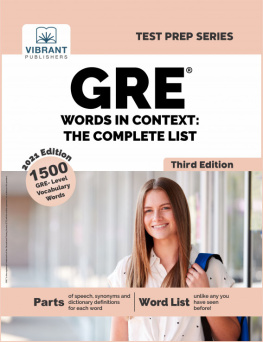

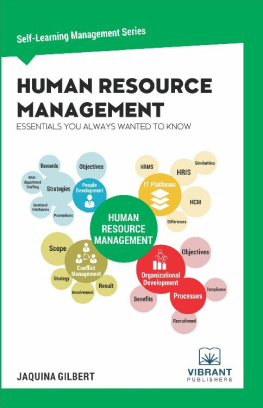
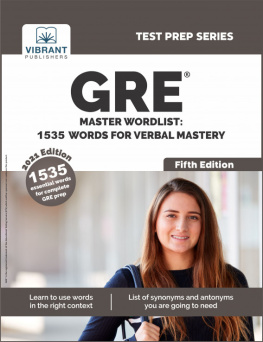
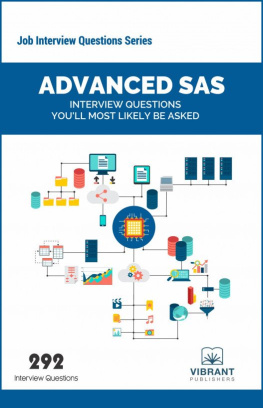




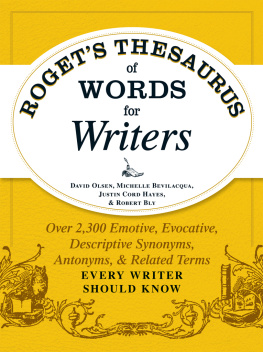

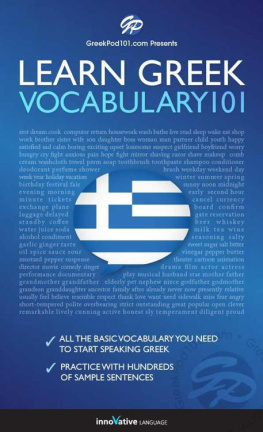

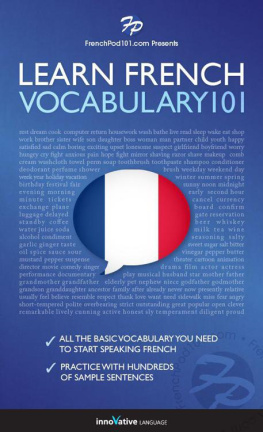
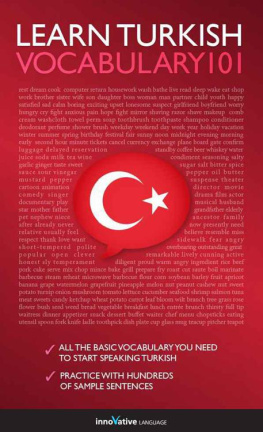
 ?
?